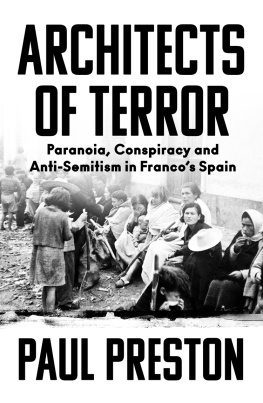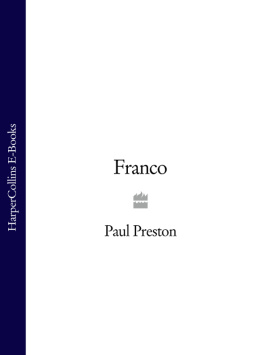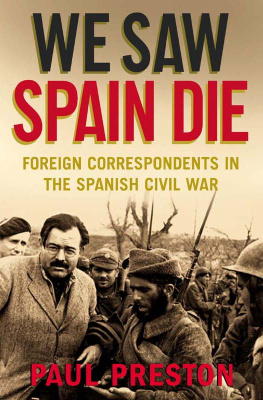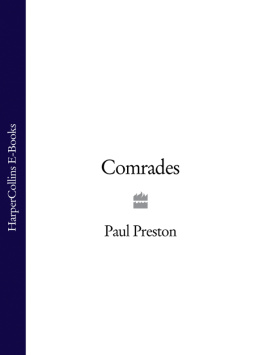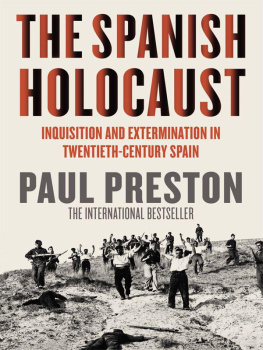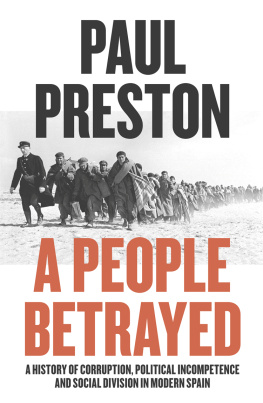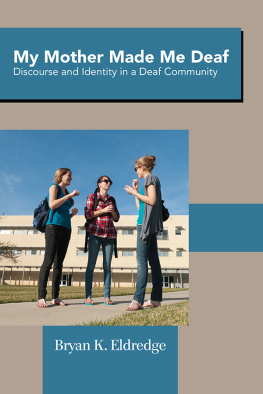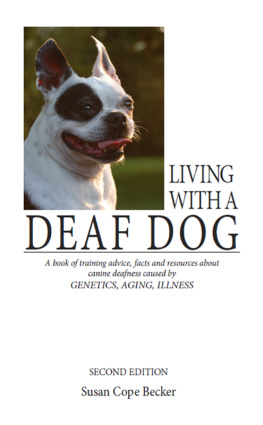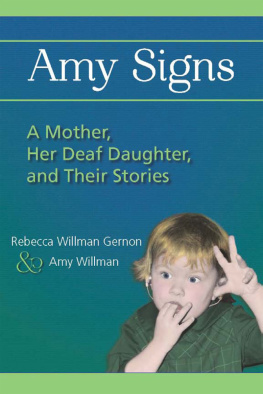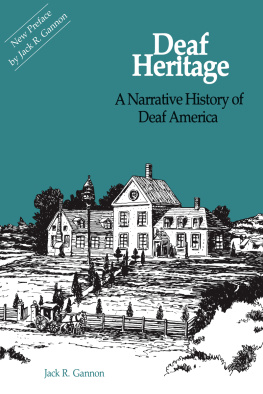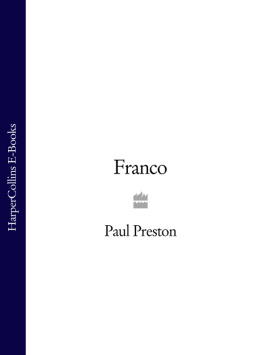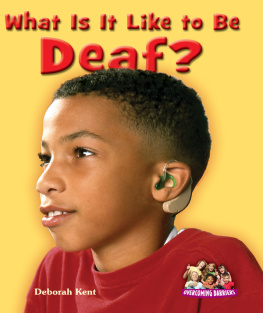MOTHER FATHER DEAF
Mother Father Deaf
Living between Sound and Silence
PAUL PRESTON
HARVARD UNIVERSITY PRESS
Cambridge, Massachusetts, and London, England
Copyright1994 by the President and Fellows
of Harvard College
All rights reserved
Printed in the United States of America
First Harvard University Press paperback edition, 1995
Library of Congress Cataloging-in-Publication Data
Preston, Paul (Paul M.)
Mother father deaf: living between sound and silence / Paul Preston.
p. cm.
Includes bibliographical references and index.
ISBN 0-674-58747-2 (cloth)
ISBN 0-674-58748-0 (pbk.)
I. DeafUnited StatesFamily relationships. 2. Children
of handicapped parentsUnited States. 3. DeafMeans
of communication. 4. BiculturalismUnited States. I. Title.
HV2380.P73 1994
362.423dc20 93-44895
CIP
Designed by GwenFrankfeldt
ForMom, who encouraged me to take risks
For Dad, who warned me not to run out of gas
CONTENTS
One of Michaels first memories is a hot summer day, standing outside the gate of his familys small home in Akron, Ohio. It was 1924; Michael was four years old. His father, a newly arrived immigrant from the Ukraine, yelled from the porch to close the gate. Michael ignored his father. His father yelled again, but Michael kept staring out the open gate. His father, Cossack eyes fiery with anger, grabbed him from behind and dragged him into the house. His older sister and brother could hear the sounds of their father whipping Michael.
A few days later, the source of Michaels disobedience was discovered. Michael had never heard his fathers voice calling from the porch. Michael was deaf. Born hearing and never apparently sick, he had been stolen from the world of sound by some unknown thief. The change, invisible and profound, had not been noticed until then. Michael remembers his father grabbing him once again, but this time clutching him to his chest and rocking him quietly. It was the only time he ever saw his father cry.
Michael is now 74. He is my father.
Although I have normal hearing, both of my parents are profoundly deaf. This book explores the lives of other people like myselfhearing children of deaf parents. I begin with my fathers story because it is part of my family history. It is one of the pieces that I know about a hearing grandfather long dead, and about my father as a young boy. Three generationsmy grandparents, my parents, and myselfrepresent a twist in our family Mbius strip: Hearing into Deaf into Hearing. As in most of the families described in this book, both grandparents and grandchildren are hearingyet somehow different from each other.
The title of this bookMother Father Deafis a commonly used identifier for children of deaf parents within the Deaf community. Although used for both hearing and deaf children, mother father deaf remains a lifelong identifier for hearing children. Deaf children of deaf parents become known in the Deaf community in their own right as deaf persons. However, for hearing children and adult children of deaf parents, this phrase legitimizes their connection to an often separate and impenetrable land. It is how many deaf people explain the curious presence of a hearing person in their exclusively Deaf world: Oh, you know him... mother father deaf. By the knowing responses of other deaf people, hearing children recognize their acceptance within the Deaf community.
During my fieldwork, I traveled to Israel. The political climate was particularly tense, and I was foolishly wandering alone through the streets of a nearly deserted Jerusalem. Unbeknown to me, tourists had been warned off the streets. I could feel piercing eyes watching me through closed shutters. I nervously scanned the streets and saw a group of ten tourists gathered in front of one of the Stations of the Cross. What caught my eye was that they were signing. They were deaf. I immediately moved over toward them. They were a group of German deaf tourists. Although sign language is not universal, we were able to communicate. Almost immediately, they wanted to know how I knew sign language. Mother father deaf, I explained. They all nodded their heads and smiled. One woman came over to me and put her arm around me. Same us, she nodded as she pulled me into their group.
In a small-town cafe, Peter sat across the table and paused after I asked him a final question: So did having deaf parents make any difference? In a quiet and deliberate voice, he said:
I was so fortunate. You know, I saw a side of life that most people never see. I learned things that even today most of my friends still dont know. My life is just so much richer because my parents were deaf. In spite of all the hardships they had to endure, they kept going. Kept on. And, most of all, they loved each other, and they loved me. What more can you ask for?
Months later, I waited impatiently in a classroom. I had never met Doreen before she stomped into her interview:
Boy! I cant wait to get this stuff off my chest! Ive been holding on to all this negative bullshit for over thirty years! Interpret what theyre saying. Sign this for me. Dont listen to the radio, I cant hear it! Yes, its too bad you cant hear, but is it my fault I can? Im not deaf. Im hearing!
Thousands of miles from either Peter or Doreen, I sat in Angeliques kitchen. While her mother watched television in the next room, Angelique explained what it was like to have her mother live with her. Then she stopped and looked at me:
You know, these frustrations are just part of human life. It doesnt really make that much difference that my mother is deaf. A lot of it is just human nature, human interaction. My mother is deaf, but shes also my mother.
Peter, Doreen, and Angelique represent a brief spectrum of the people interviewed for this book. They illustrate the range of emotional and reasoned responses to the overarching question asked of these informants: How have deaf parents made a difference in who you are today?
These mens and womens lives highlight two features that are central to all cultures: communication and family. Recalling a scene from her early childhood, Martha evokes the terror of not being able to communicate or be understood:
I dont know if this really happened or I dreamed it. I was about three years old. It was absolutely dark all around me and I was afraid. I screamed out, but my parents couldnt hear me. They couldnt hear me. I kept screaming, Mamma, Daddy, why cant you hear me? Im afraid! Why cant you hear me? Why cant you hear me?
Ricardos assessment of his family role was both defiant and uncertain:
Ever since I was little, people used to pat me on the head and tell me, Now, you make sure you take care of your parents. Youre all theyve got. God! I hated it. I wanted to say, And whos supposed to take care of me?
Martha and Ricardo raise questions that cut across ethnic and geographic boundaries: How important is auditory language in any childs development? Are nontraditional family roles functionally adaptive or intrinsically damaging?



